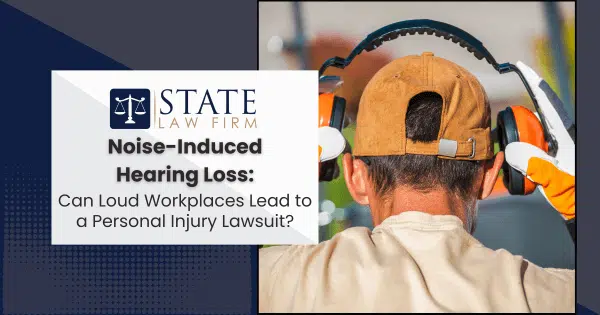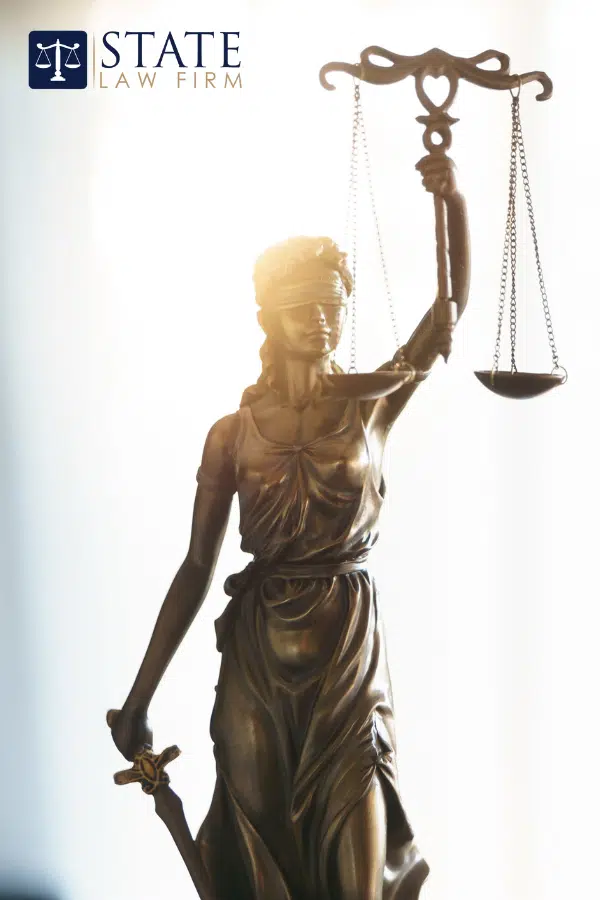Noise from construction sites, factories, warehouses, and even busy restaurants does not just fade when the shift ends. For many workers, the ringing in their ears and the gradual need to turn the volume up are signs of permanent damage. Public health data suggest that millions of American workers are exposed to hazardous noise levels that can cause long-term hearing loss.
If you work around loud machinery or constant industrial noise, your hearing problems may not be “just getting older.” They may be a preventable workplace injury. Get answers fast in our guide on Construction accident lawyers, including deadlines, insurance tactics, and what paperwork matters. When hearing damage interferes with your ability to work, communicate, or enjoy life, it is time to understand your legal options.
Understanding Noise-Induced Hearing Loss (NIHL)
Noise-induced hearing loss occurs when delicate structures in the inner ear are damaged by sound that is too loud or that lasts for an excessive amount of time. Sometimes the damage comes from a single intense blast, such as an explosion or a sudden equipment failure. More often, it builds slowly over years of exposure to machinery, tools, engines, and alarms.
Workers may notice early warning signs and dismiss them. Common symptoms include:
- Ringing or buzzing in the ears after a shift
- Needing to turn the television or phone up higher than before
- Difficulty understanding speech in crowded rooms
- Feeling like people are “mumbling” even when they are not.
Unlike a cut or a bruise, this type of damage is often permanent. Hearing aids and other treatments can help you adapt, but they cannot restore the original hearing you once had. That is why safety rules require employers to monitor noise levels and use hearing protection programs for workers in loud environments.
From a legal perspective, the key question is whether your hearing loss can be linked to work. That link is based on medical evidence, including audiograms that show your pattern of hearing loss, and a clear picture of your noise exposure over time. A personal injury or workers’ compensation claim takes those facts and asks a second question: Did your employer fail to reasonably protect you from a known hazard? Common Industries and Jobs at Risk for Loud Workplace Environments
Some jobs are noisy by nature. Construction workers stand next to jackhammers, impact drivers, pile drivers, and concrete mixers day after day. Manufacturing and warehouse workers spend entire shifts near conveyor lines, stamping presses, and forklifts. Airport ground crews, miners, oil and gas workers, and many first responders also work in environments where shouting is the only way to be heard.
Research on noise exposure has consistently shown that:
- A large share of workers in construction and manufacturing spend years in hazardous noise levels
- Many of those workers are either not provided with hearing protection or do not receive effective training on how and when to use it.
- A significant percentage of noise-exposed workers already show measurable hearing loss on audiograms, even before they reach retirement.
In practice, that means a carpenter, equipment operator, mechanic, machinist, or warehouse worker who starts to notice hearing problems is not alone. Hearing loss in these fields is predictable and preventable, which matters when courts evaluate whether an employer should have taken additional measures.
If you spent years around loud equipment without consistent hearing protection, or your employer ignored complaints about noise levels, that history can become important evidence. An attorney can help you reconstruct your exposure, identify witnesses, and gather job records that support your claim.
Laws and Regulations Protecting Workers from Noise Hazards
Workplace noise is not just a comfort issue; it is regulated as a safety hazard. Both federal and California safety agencies set limits on how loud a workplace can be before employers must take action.
Under federal rules, employers must keep worker exposure at or below a specific eight-hour time-weighted average, measured in decibels. At the federal “permissible exposure limit,” a worker can be exposed to a given noise level only for a limited time during the day. When noise exceeds the “action level,” employers must implement a hearing conservation program that includes:
- Monitoring noise levels in different parts of the facility
- Offering regular hearing tests for exposed workers
- Providing suitable hearing protectors, such as earplugs or earmuffs
- Training workers on the dangers of noise and the correct use of protection
- Keeping records that track exposure and test results
California workplaces are also subject to state safety standards that emphasize that noise-induced hearing loss is permanent but preventable. Those standards expect employers to evaluate noise hazards and reduce them where feasible through engineering controls, such as quieter equipment, barriers, or changes in workflow, before they rely on earplugs.
When an employer fails to follow these rules, that failure can support a civil claim. Evidence that the company ignored high noise readings, skipped annual audiograms, discouraged workers from taking hearing protection breaks, or cut corners on training can all weigh in favor of finding negligence.
The Link Between Workplace Noise Exposure and Injury Claims
Hearing loss caused by loud workplaces can give rise to two main kinds of claims: workers’ compensation and civil personal injury.
Workers’ compensation treats hearing loss as an occupational injury. In California, if you prove that your hearing loss arose out of and in the course of your employment, you may be entitled to:
- Medical treatment for your hearing condition, including hearing aids and related care
- A wage replacement benefit if your loss reduces your ability to work
- A permanent disability award based on the degree of hearing impairment
Workers’ compensation claims for hearing loss often require:
- A formal hearing test performed by an audiologist
- A medical report that connects your pattern of hearing loss to noise exposure
- A detailed work history that shows long-term exposure to loud environments
In some cases, a civil personal injury lawsuit may also be available. This is more likely where:
- A third party, such as an equipment manufacturer, failed to warn about noise hazards or design safer machinery
- A contractor or property owner outside your direct employer created the dangerous noise conditions.
- The employer’s conduct was so reckless or intentional that additional remedies are warranted under state law.
Civil claims can seek broader damages than workers’ compensation, including pain and suffering, as well as loss of quality of life. However, they can also be more complex and time-consuming. A careful legal analysis is required to determine whether your situation fits within an exception to the usual workers’ compensation exclusivity rules.
Key Steps to Take if You Suspect Work-Related Hearing Loss
If you believe your job is damaging your hearing, there are practical steps you can take right away to protect both your health and your legal rights.
1. Get a medical evaluation
Schedule an appointment with a hearing specialist, such as an audiologist or an otolaryngologist (ear, nose, and throat physician). Ask for a comprehensive audiogram and discuss your work history in detail. Make sure the doctor documents:
- Your symptoms and when they began
- The types of noises you are exposed to at work
- Any non-work noise exposures, such as hunting or loud music, should be so that your work exposure is accurately distinguished.
This medical documentation becomes the foundation of any claim.
2. Report the problem at work
Notify your supervisor or human resources department that you are experiencing hearing issues that you believe are work-related. Do so in writing if possible, and keep a copy. Ask whether your company has a hearing conservation program and whether you can review your prior hearing test results.
Reporting does not just comply with internal procedures. It also creates a timeline that can be important when insurers later ask when you first noticed your symptoms.
3. Document your exposure and protective gear
Write down the types of tools and machines you work with, the approximate number of hours per day you spend near them, and whether hearing protection is provided or required. Note whether:
- Noise levels require shouting to speak to someone a few feet away
- Alarms or warnings are hard to hear unless you are watching closely.
- Earplugs or earmuffs are sometimes unavailable or discouraged.
If you have coworkers with similar complaints, that pattern may matter. An attorney can help collect witness statements and job descriptions that strengthen your case.
4. Speak with an attorney early
The sooner an attorney reviews your situation, the easier it is to preserve evidence and meet deadlines. Time limits apply to both workers’ compensation and civil claims, and they can be complicated when injuries develop slowly over many years.
A law firm that handles workplace and construction-related injuries can help you decide whether to file a workers’ compensation claim, pursue a third-party lawsuit, or both. They can also deal with insurance adjusters who may try to blame your hearing loss on aging, hobbies, or prior jobs rather than the unsafe conditions at your current workplace.
Pursuing Compensation: What Damages May Be Available
Every case is different, but a successful hearing loss claim may help you recover compensation for:
- Evaluation and treatment by hearing specialists
- Hearing aids, batteries, maintenance, and future replacements
- Tinnitus management therapies are used where appropriate.
- Lost wages if you miss time for appointments or cannot continue in your current role
- Reduced earning capacity if your hearing loss limits future job options
- In a civil lawsuit, pain and suffering, and loss of enjoyment of life
In severe cases, hearing loss can force a worker to leave a trade they trained for their entire adult life. The law recognizes the financial and personal impact of that loss. Careful documentation of how your hearing problems affect your daily activities, relationships, and job performance can make a real difference in the outcome.
Throughout the process, a dedicated legal team can coordinate with your doctors, gather occupational records, and present your story in a clear and compelling manner to claims administrators, judges, or juries.
Your Hearing Is Not Disposable
Noise-induced hearing loss is one of the most common occupational injuries in the country, yet it often goes unrecognized until the damage is significant. Loud workplaces do not give employers a free pass. When companies ignore safety standards, cut corners on hearing protection, or look the other way while workers endure harmful noise, the law can hold them accountable.
If you are noticing ringing in your ears, difficulty following conversations, or other signs of hearing loss after years on loud job sites, you do not have to guess about your rights. A consultation with an experienced California injury and workers’ compensation attorney can help you understand your options, protect your health, and pursue the compensation you need to move forward with confidence.


